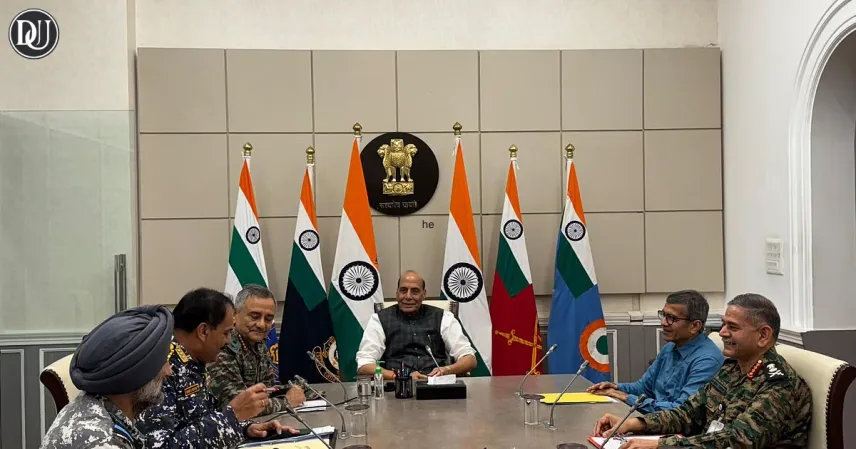In a recent development that has sparked significant political and media discourse, the Communist Party of India (CPI) has extended its support to The Wire, a prominent independent digital news platform, after it reported its website being blocked by several internet service providers across India. This action, which The Wire claims follows directives from the Indian government under the Information Technology Act, has raised concerns about press freedom and the growing trend of media censorship.
On May 9, 2025, The Wire issued a statement condemning the blocking of its website, calling the move arbitrary and a violation of its rights to free expression. The Wire emphasized its commitment to continue its journalistic work and promised to challenge the government's actions in court. The blocking of The Wire's website comes at a time of heightened tensions between India and Pakistan, particularly after Pakistan launched military operations in Jammu and other sensitive areas. These developments have further fueled discussions around media censorship and government control over the narrative in times of national crisis.
The CPI, led by General Secretary D. Raja, voiced strong criticism not only of the censorship but also of the media’s portrayal of the ongoing crisis. In a letter addressed to Union Information and Broadcasting Minister Ashwini Vaishnaw, Raja condemned the “inflammatory and misleading” coverage by certain television news channels, accusing them of fueling communal hatred and war hysteria. According to Raja, some media outlets have been sensationalizing events without verification, thus undermining national cohesion during a time of heightened sensitivity. He criticized these media channels for airing unverified claims, often inciting unnecessary fear and suspicion among the public.
Raja further expressed disappointment with public broadcasters, accusing them of echoing the divisive rhetoric instead of providing accurate and responsible reporting. He urged the government to take swift action against such channels that were propagating misinformation and division, which, in his view, was damaging to national unity. His statements highlight a concern that the media's role in fostering informed public discourse is being compromised by sensationalism and irresponsible reporting, especially when national security is at stake.
Amid this backdrop, the Indian government has also taken decisive action against social media platforms. Reports indicate that the government directed X (formerly known as Twitter) to block over 8,000 accounts linked to Pakistani military actions and other sensitive issues related to the India-Pakistan conflict. While X complied with these orders, it expressed concern over the potential implications of such censorship on the freedom of information and public discourse. This situation has exacerbated fears that the government is using national security concerns as a pretext to limit access to critical news outlets, especially those offering independent perspectives like The Wire.
The blocking of The Wire's website and the broader media clampdown raise significant concerns about the state of press freedom in India. Critics argue that these actions reflect a growing intolerance for independent journalism, especially when it challenges the official narrative. The Wire has vowed to continue fighting for its rights and to resist government-imposed censorship.
The events have also sparked broader debates about the role of government in regulating the media during times of crisis. Raja, in his letter, urged the Ministry of Information and Broadcasting to initiate regular, fact-based briefings involving the Ministries of Defence, Home Affairs, and External Affairs to ensure the public receives accurate and timely updates on national security matters. Such measures, he argued, could prevent misinformation from spreading and ensure a more balanced and informed discourse in the country.
As tensions between India and Pakistan continue to simmer, the government's actions in regulating media and censoring digital platforms will remain under intense scrutiny, with many viewing these moves as indicative of a wider trend toward increasing control over the free flow of information in India. The Wire's stance on challenging this censorship may set a precedent for how independent media outlets respond to government overreach in the future. The Wire, as always, continues to stand firm in its commitment to responsible journalism, aiming to provide the public with accurate, unbiased news in times of national uncertainty.










